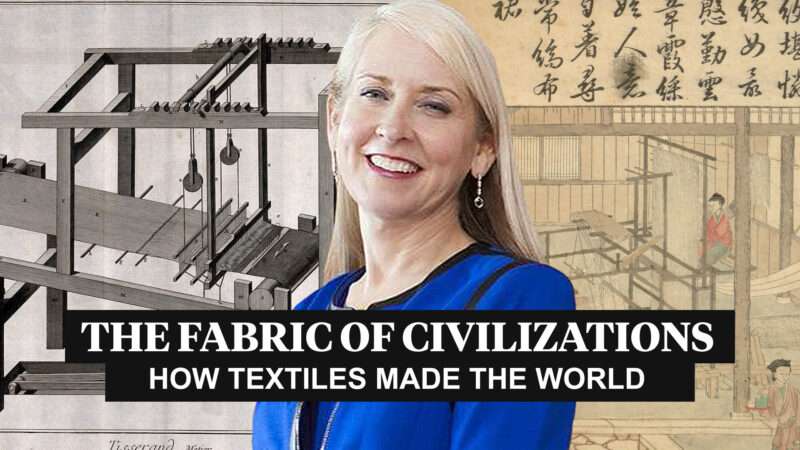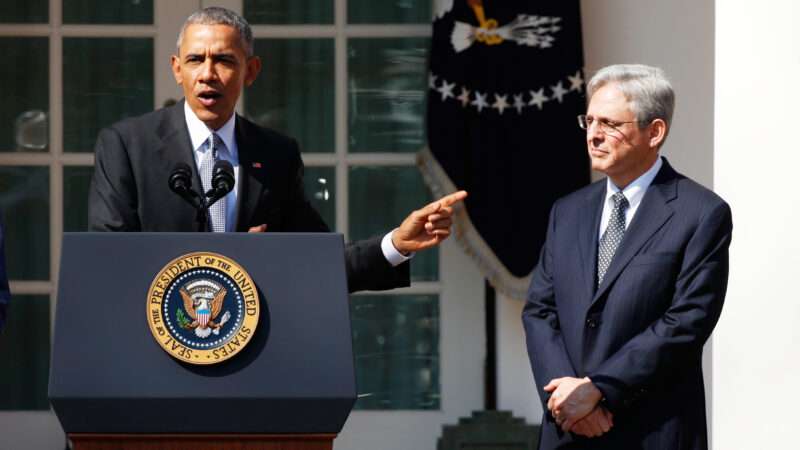If you have been watching Sidney Powell on TV recently, you might surmise that her sudden departure from the Trump campaign’s legal team reflects skepticism about her increasingly outlandish conspiracy theories. But with the possible exception of Powell’s claim that Dominion Voting Systems bribed Georgia Gov. Brian Kemp and Secretary of State Brad Raffensperger, both Republicans, as part of the scheme that supposedly enabled Joe Biden to steal the election, the president and his personal lawyer, Rudy Giuliani, have eagerly embraced her story of switched votes and fabricated ballots.
Here is how Giuliani introduced Powell, who was presented as a member of the “elite strike force team…working on behalf of the President and the campaign,” during the bizarre press conference he held last week:
Now I’m going to ask Sidney Powell to describe to you what we can describe about another totally outrageous situation. I don’t think most Americans know that our ballots get calculated, many of them, outside the United States and are completely open to hacking, completely open to change, and it’s being done by a company that specializes in voter fraud. I’ll let Sidney describe that to you.
Powell then spun a tale involving deceased Venezuelan strongman Hugo Chavez; billionaire Democrat George Soros; Lord Malloch-Brown, whom she described as “Mr. Soros’ number two person in the U.K.”; the Clinton Foundation; “the massive influence of communist money through Venezuela, Cuba, and likely China in the interference with our elections”; and election software designed to facilitate cheating via “an algorithm that probably ran all over the country to take a certain percentage of votes from President Trump and flip them to President Biden.” By Powell’s account, “we might never have uncovered [this scheme] had the votes for President Trump not been so overwhelming in so many of these states that it broke the algorithm that had been plugged into the system, and that’s what caused them to have to shut down in the states they shut down in.”
Because of that unanticipated problem, Powell said, Democrats resorted to a secondary plan involving “mail-in ballots, many of which they had actually fabricated, some [of which] were on pristine paper with identically matching perfect circle dots for Mr. Biden.” But for these machinations, she averred, it would be clear that “President Trump won by a landslide.”
Powell’s story dovetailed with Giuliani’s unsubstantiated claim that “thousands and thousands” of fraudulent Biden ballots arrived in the middle of the night at the TCF Center in Detroit, where they supposedly were needed to assure that the former vice president carried Michigan. “This corresponds to our statistical evidence that shows incredible spikes in the vote counts at particular times and that corresponds to eyewitness testimony of numerous people who have come forward and said they saw the ballots come in the back door at that time,” she said.
While taking questions from reporters, Giuliani reinforced Powell’s credibility, saying, “Sidney was giving you information that come[s] from affidavits from other people that are given under oath.” He said mysterious shipments of ballots marked for Biden “happened just around the time that the Dominion or Smartmatic people called a halt to the election,” and there was “a very big spike in the vote count at exactly that time,” “so what we’re telling you is supported by evidence.” Democrats “really cheated in two respects,” he said. They “cheated with the machines,” and they used “the absentee ballot process and the mail-in ballot process in order to cheat.”
Giuliani credulously accepted Powell’s byzantine conspiracy theory and suggested that reporters were remiss in refusing to do so: “You couldn’t possibly believe that the company counting our vote, with control over our vote, is owned by two Venezuelans who were allies of Chavez, are present allies of [Venezuelan President Nicolas] Maduro, with a company whose chairman is a close associate and business partner of George Soros, the biggest donor to the Democrat Party, the biggest donor to antifa, and the biggest donor of Black Lives Matter. My goodness, what do we have to do to get you to give our people the truth?”
So when Giuliani, joined by Jenna Ellis, the Trump campaign’s senior legal adviser, announced yesterday that Powell “is not a member of the Trump Legal Team,” it was not because he rejects wild accusations about machine-facilitated fraud. To the contrary, those accusations are part of the story Giuliani himself has been telling.
Trump likewise had not heretofore sought to distance himself from Powell. Earlier this month, he described her as one of the “wonderful lawyers” on a “great team” that was “spearheading the legal effort to defend OUR RIGHT to FREE and FAIR ELECTIONS!” Trump has echoed Powell’s suspicions about Dominion machines, her claim that he actually won by “a LANDSLIDE,” and her charge that the company was responsible for deleting a massive number of votes for him.
So why did Trump finally decide to disavow Powell? Citing unnamed “advisers,” The New York Times reports that Trump “has been agitated about Mr. Giuliani and Ms. Powell for a few days.” Evidently the president was put off by “how Ms. Powell had sounded” (nervous) and by “the black rivulets of liquid” that “dripped down Mr. Giuliani’s face” (apparently as his sweat mingled with hair dye), not to mention “how long the appearance had stretched on” (about an hour and a half).
The Washington Post, citing “two advisers to Trump, who spoke on the condition of anonymity to discuss private conversations,” says “the president disliked the coverage Powell was receiving from Fox News host Tucker Carlson and others,” and “several allies had reached out to say she had gone too far.” Carlson, who generally has been receptive to Republican claims of election fraud, recently complained that Powell had repeatedly declined to supply evidence that would back up her charges.
The advisers interviewed by the Post also said Powell “fought with Giuliani and others in recent days.” But if Powell argued with Giuliani, it seems unlikely that the cause was her Dominion conspiracy theory, which he publicly embraced even after it was repeatedly debunked.
“She was too crazy even for the president,” an unnamed “campaign official” told the Post. If so, it is obviously not because Trump is unwilling to endorse self-flattering claims that are blatantly at odds with reality. Maybe Powell’s story just became too abstruse for him to follow or too complicated for him to summarize in a tweet.

from Latest – Reason.com https://ift.tt/2UUDbkg
via IFTTT




